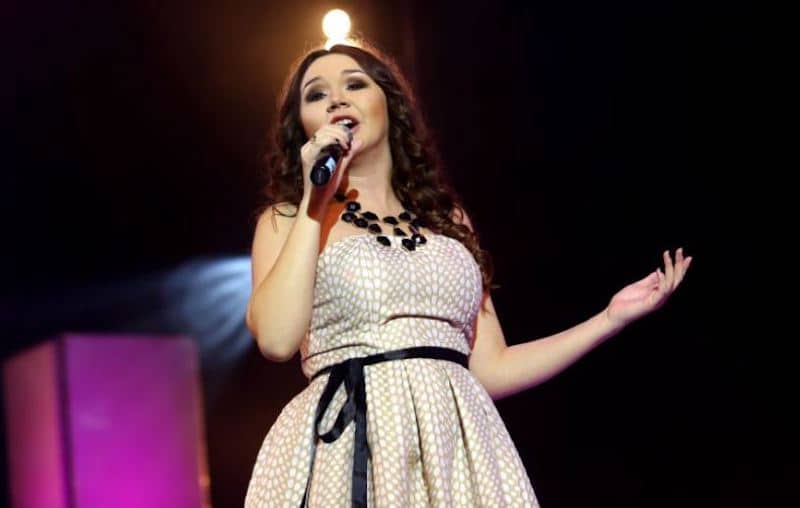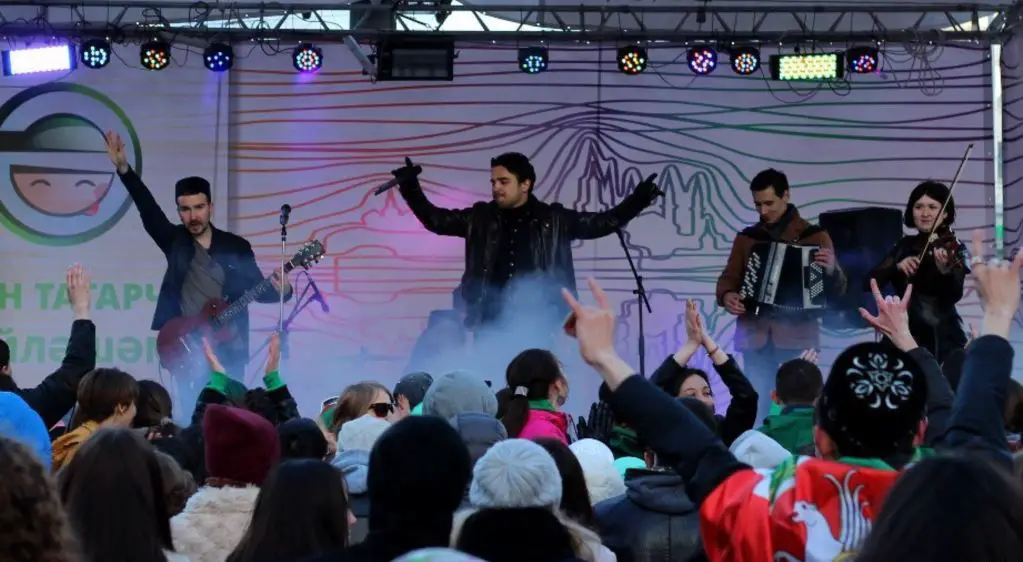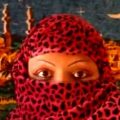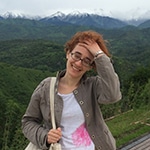Irke (Иркә in Tatar, Иркэ in Russian; real name Aygul Minshakirova, Айгөл Миншакирова in Tatar) is a contemporary Tatar singer. She sings mainly pop, with some folk mixed in. She’s also an actress, and both her acting and singing work has taken place entirely in the Tatar language.
Irke is from a village in the south of Tatarstan, Russia. Her family is actually Mishari (мишәр татарлары), a sub-ethnicity of the Tatar ethnic group. She got her start in music in her late teens, when she moved to a larger city in Tatarstan and started working as a backing vocalist. She auditioned for the Tatar-language analog of Star Factory (Йолдызлар Фабрикасы in Tatar) and, as a result of that experience, made it into the festival Tatar Song (Татар жыры), a prestigious international Tatar song festival. This was in 2005, when the contest changed from purely folk songs to a wider range of contemporary Tatar music. She returned to the festival several times over the next few years, winning bigger and bigger prizes along the way.
Irke released her first music video, to her song “Янадам тудым,” in 2006, and her first album, Бәхетле булыр идең (translation not available), in 2007. Her sixth and most recent album appeared in 2014. She’s also collaborated with a number of other Tatar performs, including Khania Farkhi (Хания Фархи), the group Ayfara (Айфара), and Landysh Nigmatzyanova (Ландыш Нигматзяновa). She’s also won awards from TMTV, the Tatar music TV channel. Her brief acting career, in 2007 and 2008, included the second and third parts of the film What Does a Morning Without a Rooster Bring? (Әтәчсез иртә ни китерә?).
Irke is still very active on the music scene today, with an active concert schedule.
Irke’s “Карлыгач”
https://www.youtube.com/watch?v=-JzRmkdYXow
басудагы паласаны
никтер урман димилэр
синен шомырттай кузлэрен
тен йокысы бирмилэр.
я бозлы суга саласын
я утта яндырасын
я куккэ алып очасын
я ташлап калдырасын.
куш-та
Безнен инешнен ярына,
Оя корган карлыгач
Карлыгачтан хэбэрем юк
Янымда син булмагач
я бозлы суга саласын
я уттай яндырасын
я куккэ алып очасын
я ташлап калдырасын
авыл артындагы таунын
итэге тулы жилэк
тешемдэ син акбуз аты,
остендэ ап-ак кулмэк.
“Эйткен иден,” a Tatar folk song:
Lyrics for “Эйткен иден”:
Әйткән идең: «Әгәр сөя калсаң
Миннән башка берәр бүтәнне,
Сөй… бары тик миннән яхшыракны,
Сөймә ләкин миннән түбәнне…»
Юлыктым мин, Лулу, бер чәчәккә,
Көтмәгәндә, уйламаганда,
Нәкъ синдәйгә, синең шикеллегә,
Әйтерсең лә синең дәвамга…
Тормышымның синнән соңгысында
Тапканым юк иде һичкемне.
Нишләргә соң? Бир бер киңәш миңа:
Ул һәр яктан синең шикелле.
«Нишләргә соң?» — дигән сорау белән
Киләм менә рәсемең каршына…
Үзең булсаң әгәр, мондый уйлар
Килер идемени башыма.











